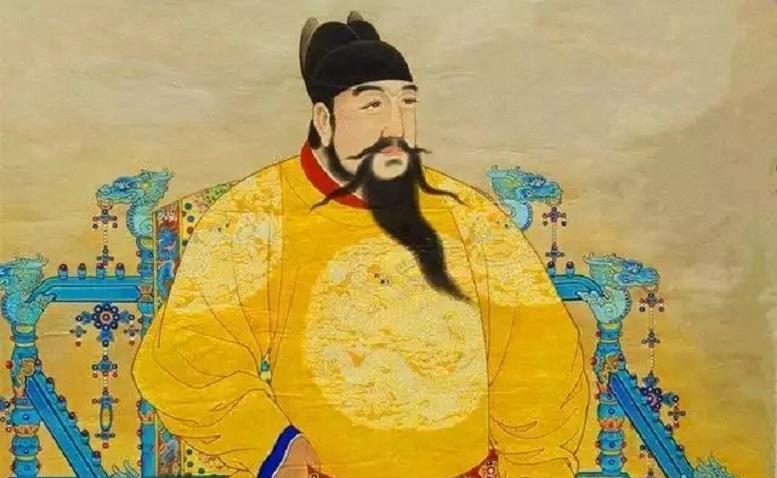In 1399, in order to overthrow Zhu Yunjiao's rule and seize the power of the Ming Dynasty, Zhu Di, the King of Yan, launched the Battle of Jingnan under the name of "Qing Junfang". Finally, in 1402, the Yan King's army broke through the capital, and Zhu Di ascended the throne, known as Ming Chengzu, known as the "Yongle Emperor". The word that accompanied Ming Chengzu Zhu Di throughout his life was the word "usurpation", and he was also one of the successful usurpers in history.

During the Ming Dynasty, in order to unify the rights of the world, Zhu Yuanzhang drew on the experience of the previous dynasty and established princes and princes in various parts of the country. The establishment of the clan king has advantages and disadvantages, to a certain extent, stabilizing the reactionary forces between countries and regions, and if the clan king is too powerful, it will directly affect the power of the emperor. The history of the Ming Dynasty once recorded that among all the sons of Zhu Yuanzhang, Zhu Di was the most similar to him, intelligent and cunning, and the most talented as an emperor. However, because of Zhu Yuanzhang's favor for Empress Ma, even though Empress Ma's first son Zhu Biao had already died, Zhu Yuanzhang still passed the throne to his nineteen-year-old grandson Zhu Yunjiao. After Zhu Yunjiao ascended to the throne, Zhu Di, who had intended to usurp the throne after executing many of the princes of the clan, had quietly made preparations in the interior at this time.
Zhu Di's road to usurpation of the throne can be described as very difficult, under Zhu Yunjiao's wanton massacre of the king of the domain, Zhu Di had to pretend to be crazy and stupid in order to save his life, and the folk rumors that Zhu Di, the king of Yan, was a stupid and stupid person. However, Zhu Di grew up under the influence of Zhu Yuanzhang and was good at disguise. Secretly training the army and building weapons in the private land, Zhu Di's military ability and strategic strategy are very outstanding, since he was a child, he followed his father around to fight, and when he grew up, Zhu Di was stationed in the northern frontier for a long time, Zhu Di learned experience in many wars, and created extraordinary practical combat ability and excellent strategic awareness. This is in stark contrast to Zhu Yunjiao, who grew up in the palace, although Zhu Yunjiao is full of poetry and books, intelligent and sensitive, but in terms of experience and strategy, he and Zhu Di can be described as very different. Zhu Yunxiu's indecisive personality also led to the further loss of imperial power, and when he learned that Zhu Di, the King of Yan, had rebelled, he did not kill Zhu Di completely, taking into account blood relations and not wanting to take the charge of killing the imperial uncle, but he did not expect that his imperial uncle would plot to usurp the throne and kill himself.
Zhu Di, the King of Yan, was already ambitious for the Ming Dynasty and was bound to seize the throne. Zhu Di's heart is fierce, since he was a child, he likes to fight by force, in the long period of resistance, Zhu Di deeply understands the importance of personal connections, so he has gained a lot of talents, which is also one of the reasons why he has a large number of soldiers and horses in his hands, which also laid the foundation for him to launch the Battle of Jingnan in the future. Because of the exploitative policy of the king of the domain, Zhu Yunjiao had no talented strategists around him, just a group of civilian officials who could read, and Zhu Di's success was also reasonable.
In 1424, Zhu Di died in Yumuchuan on the way back to the division on the Northern Expedition, when he was 64 years old, his body was already unable to hold up, and the long distance and war made him unable to sleep. During Zhu Di's reign, he made many contributions to the country, and the famous Zheng He's voyage to the West was also slowly developed under the strong support of Zhu Di, and the economy of the Ming Dynasty developed rapidly, and the national strength was greatly improved, creating a prosperous era of Yongle.